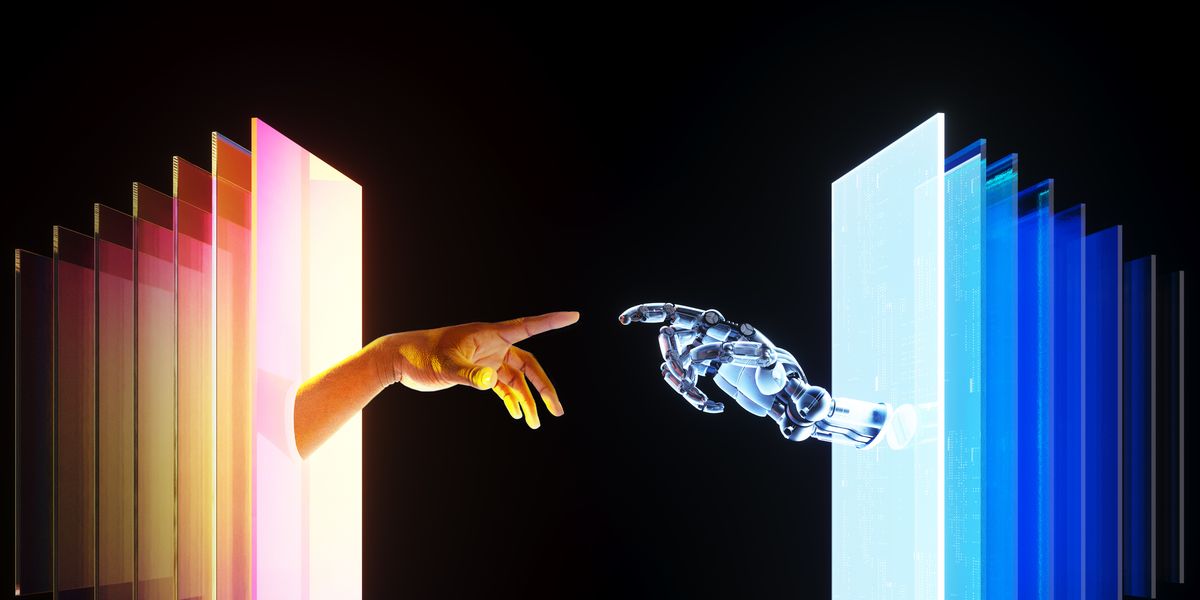
The “Second Law of Infodynamics” could prove it.
- Many philosophers and scientists have pondered if we live in a simulated universe, and University of Portsmouth scientist Melvin Vopson believes he has evidence.
- Using his previously formulated Second Law of Infodynamics, Vopson claims that the decrease of entropy in information systems over time could prove that the universe has a built-in “data optimization and compression,” which speaks to its digital nature.
- While these claims warrant investigation, they’re far from a discovery themselves, and would likely need rigorous proof for the scientific community at large to seriously consider this theory.
In the 1999 film The Matrix, Thomas Anderson (a.k.a. Neo) discovers a truth to end all truths—the universe is a simulation. While this premise provides fantastic sci-fi fodder (and explains how Neo can learn kung-fu in about five seconds), the idea isn’t quite as carefully relegated to the fiction section as one might expect.
University of Portsmouth scientist Melvin Vopson, who studies the possibility that the universe might indeed be a digital facsimile, leans into the cinematic comparison. In an article published on website The Conversation this past October, Vopson invoked the Wachowskis’ sci-fi masterpiece, and around the same time, he published a book on the subject—Reality Reloaded, a subtle hat tip to the title of the less successful Matrix sequel. While he is just one among many who’ve contemplated the idea, Vopson claims to have one thing that those before him lacked: evidence.
“In physics, there are laws that govern everything that happens in the universe, for example how objects move, how energy flows, and so on. Everything is based on the laws of physics,” Vopson said back in 2022. “One of the most powerful laws is the second law of thermodynamics, which establishes that entropy—a measure of disorder in an isolated system – can only increase or stay the same, but it will never decrease.”
Based on this famous law, Vopson similarly expected that entropy in information systems—which his previous research defined as a “fifth state of matter”—should similarly increase over time. But it doesn’t. Instead, it remains constant, or even decreases to a minimum value at equilibrium. This is in direct contrast to the second law of thermodynamics, which inspired Vopson to adopt the Second Law of Information Dynamics (or Infodynamics).
“We know the universe is expanding without the loss or gain of heat, which requires the total entropy of the universe to be constant,” Vopson wrote in The Conversation. “However we also know from thermodynamics that entropy is always rising. I argue this shows that there must be another entropy—information entropy—to balance the increase.”
Vopson argues that this law plays a role in atomic physics (electron arrangement), cosmology (see above), and biological systems. This last one is where Vopson makes a big claim: contrary to Charles Darwin’s idea that mutations occur randomly, mutations actually occur so that information entropy is minimized. Vopson analyzed the constantly-mutating SARS-CoV-2 (a.k.a. COVID-19) virus, and his paper on that investigation—published this past October in the journal AIP Advances—shows a “a unique correlation between the information and the dynamics of the genetic mutations.”
What this all adds up to, in Vospon’s estimation, is that the Second Law of Infodynamics could also be used to prove that we live in a simulation.
“A super complex universe like ours, if it were a simulation, would require a built-in data optimization and compression in order to reduce the computational power and the data storage requirements to run the simulation,” Vopson wrote in The Conversation. “This is exactly what we are observing all around us, including in digital data, biological systems, mathematical symmetries and the entire universe.”
All of these claims require significant further testing and verification before even being considered plausible, and as IFLScience notes, there are as many research papers refuting our digital existence as there are promoting its scientific inevitability. It’s possible that Vopson’s Second Law of Infodynamics could lead to some interesting discoveries, but the question first pondered by Plato remains unanswered.
The 2023 Popular Mechanics Automotive Excellence Awards: EVs
News Related-
Russian court extends detention of Wall Street Journal reporter Gershkovich until end of January
-
Russian court extends detention of Wall Street Journal reporter Evan Gershkovich, arrested on espionage charges
-
Israel's economy recovered from previous wars with Hamas, but this one might go longer, hit harder
-
Stock market today: Asian shares mixed ahead of US consumer confidence and price data
-
EXCLUSIVE: ‘Sister Wives' star Christine Brown says her kids' happy marriages inspired her leave Kody Brown
-
NBA fans roast Clippers for losing to Nuggets without Jokic, Murray, Gordon
-
Panthers-Senators brawl ends in 10-minute penalty for all players on ice
-
CNBC Daily Open: Is record Black Friday sales spike a false dawn?
-
Freed Israeli hostage describes deteriorating conditions while being held by Hamas
-
High stakes and glitz mark the vote in Paris for the 2030 World Expo host
-
Biden’s unworkable nursing rule will harm seniors
-
Jalen Hurts: We did what we needed to do when it mattered the most
-
LeBron James takes NBA all-time minutes lead in career-worst loss
-
Vikings' Kevin O'Connell to evaluate Josh Dobbs, path forward at QB
